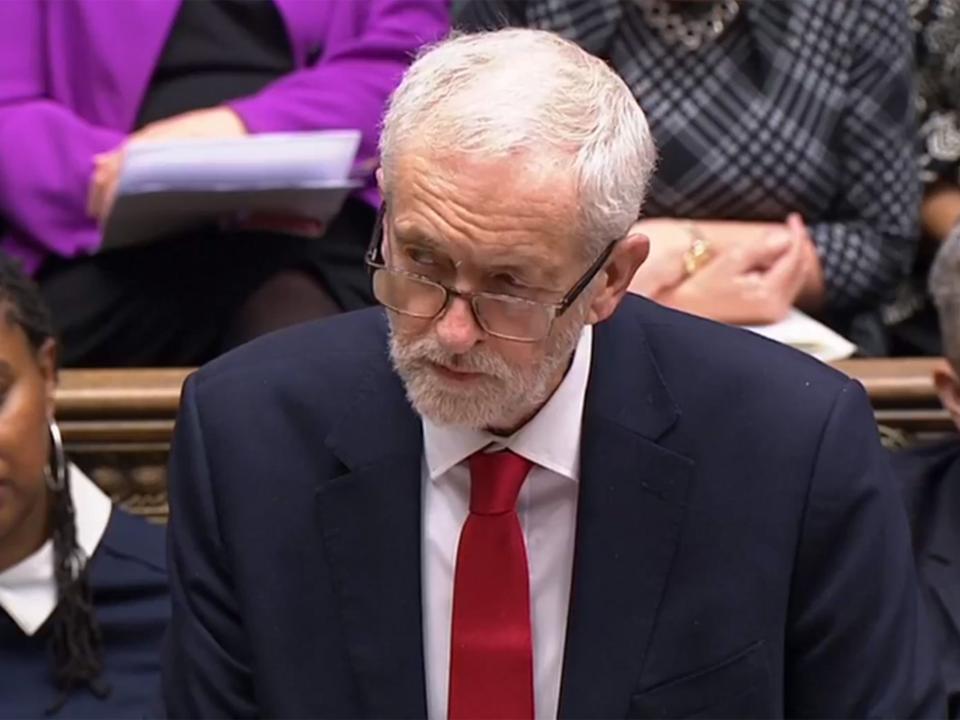I supported Jeremy Corbyn at the last election – now he must commit to giving the people a Final Say
Brexit is an impossible project and always was. We are so deeply embedded in European regulation that we cannot disentangle ourselves without inflicting massive self-harm. Now is not the same as 1975. We have had three decades of globalisation and all aspects of life are interconnected across Europe and the world.
Theresa May’s deal is a terrible deal. But it is the best deal that Britain could have expected. Britain did end up having its cake and eating it. It is a bespoke deal that allows Britain to control immigration from Europe while retaining free movement of goods – a huge concession given that the EU is by nature a regulatory space and cannot offer terms that would lead to its unravelling.
Yet it is a terrible deal primarily because we remain in large parts of that space without being able to participate in making or changing those regulations.
There are other reasons too, of course – for example, the loss of influence over EU foreign and security policy, though regulation is the most important. What is more, this deal is only the beginning. It is just a withdrawal agreement, and we still have to negotiate our future relationship. It condemns us to years and years of endless Brexit-obsessed turbulence.
It is time that the Labour Party accepted this reality. The logic of the situation is that it is necessary to find a way to reverse Brexit. There is no better deal that Labour could negotiate.
Even if the EU were willing to enter negotiations, which it is not, the deal proposed by the Labour leadership involves minor tweaks to May’s deal – a permanent customs union, which is likely to end up being the case anyway if May’s deal goes through and represents the most neo-liberal part of the EU regulatory space, and accepting workers’ rights and environmental regulations, which we could also do anyway.
Such a deal is likely to face exactly the same political impasse as May’s deal, since it is neither remain nor leave and satisfies no one. It does not actually mean leaving the EU, only giving up our voice.
At the Labour Party conference in September, the motion passed set out a series of sequential and somewhat cumbersome steps, starting with defeat of the final deal, then pressing for a general election, presumably through a Commons vote of no confidence. Only then were other options including a public vote to be considered. Because the Labour leadership abide by conference decisions, there is considerable pressure to stick to this sequence of events. Those who favour a public vote are calling for a vote of no confidence, even if it is going to be defeated, so as to get to the next stage.
Is it not time for Labour to seize the initiative? At the EU summit, it became crystal clear that no further negotiations are possible, so Labour needs to take a lead on a public vote. For two years, the leadership can say, Labour has been trying to find a way to respect the referendum result while protecting jobs and livelihoods.
May’s deal does not do this and no other deal is possible. What we have learned over two years of painful negotiations and debate is that we cannot actually leave the EU. But if we stayed in the EU, we could play an active role in reforming the EU so as to regenerate especially those areas hit most hard by globalisation.
Even if a no-confidence vote is passed and an election is called, Labour could no longer call for a better deal. Its manifesto would have to commit to remain and reform. It is the only progressive position. But it is also the only winning position.
It is what Labour supporters want, especially the activists on whom Labour would rely in any election. There has also been a significant shift to remain especially among Labour voters, and this shift would be much bigger were Labour to adopt a remain and reform position. Labour would lose an election if it fought on a “better Brexit deal” platform because it would sound improbable and confused. The tactical votes that went to Labour last time would go to the Liberal Democrats and the Greens, because Labour would lose even more support in Scotland, and because the activists would lose their enthusiasm.
So the issue is not the sequence of steps to take now, it is how to solve the Brexit conundrum. If Labour took a clear position, it could be solved either through a general election or a referendum with an option to remain. If Labour fails to take such a position and the current mess continues, it will start to lose members and supporters, and the momentum initiated by the original campaign for Jeremy Corbyn in 2015 will be dissipated.
But if Labour were to espouse a new democratic and socialist programme in tune with these global times, together with left-wing partners in Europe, who have been begging us to stay in recent weeks, we could embark on an exciting campaign all over again.
Mary Kaldor is a professor of global governance at the London School of Economics

 Yahoo News
Yahoo News 

